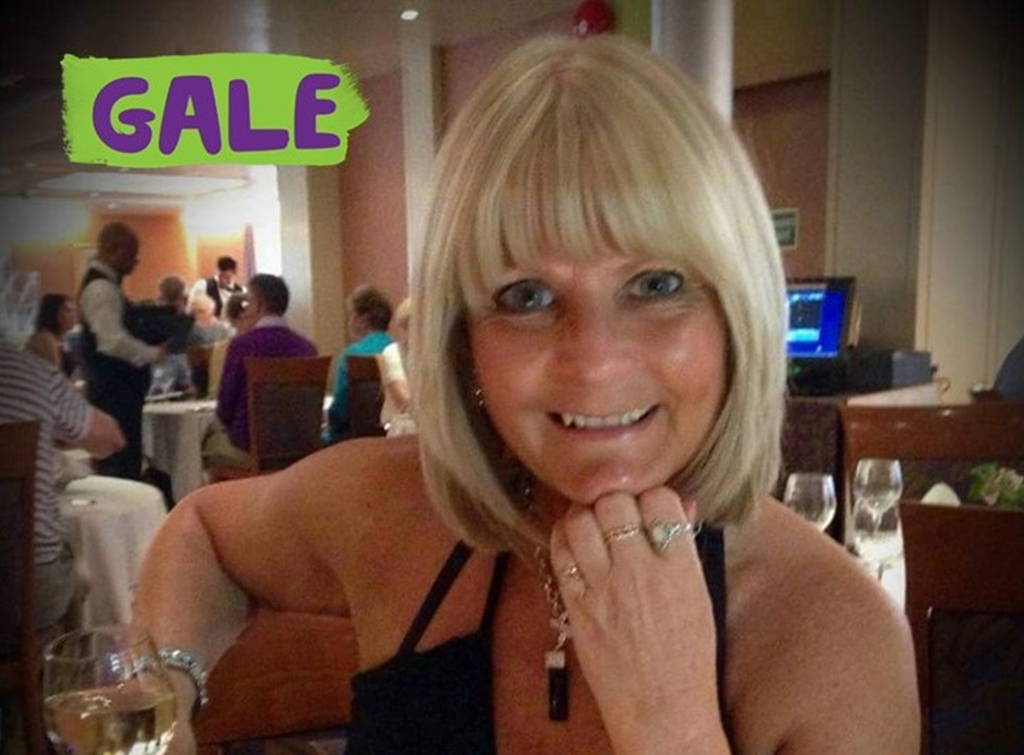“The biggest help is often found in the simplest and smallest of actions”

When Gale Kidman from Mountain Ash was diagnosed with a rare breast cancer in 2012, she began a difficult journey of treatment and recovery.
Today, on World Cancer Day, she talks about the importance of friendship and finding support.
On receiving a cancer diagnosis
Even from the earliest stages, when all I had was a feeling that something was very wrong, friendship has been hugely important.
I had gone from being a confident, fit, healthy and energetic woman to becoming more and more fatigued. Just getting up for work was a struggle.
It was my good friend who, becoming increasingly concerned, pestered me to go back to the doctor even though all my tests were telling me I was fit and well.
When I received my diagnosis, my world fell apart. The lump in my breast was bigger than expected, the word ‘chemo’ hit like a sledge hammer and I had the terrifying realisation that ‘this is really happening to me’.
You suddenly feel like you are alone. Isolated by this illness that no-one else really seems to understand.
On friendship
At the time of my diagnosis I lived on my own. Receiving my diagnosis was instantly isolating – even trying to find the right words to explain my cancer to my family and friends was difficult.
Looking back, I realise I was so used to being this independent and capable woman that I found it very difficult to ask for, or to accept an offer of help.
I was so used to being strong, for me and my family that it was very difficult to let this part of my identity go.
But I moved in with an old close friend for a few weeks at the start of my treatment. Her support was just what I needed, and we laughed and cried together.
I’m really not really sure how I would have managed without the support of friends, both old and new.
On finding support
During my treatment, I was off work for over a year.
What surprised me was how difficult some people found it to offer support. It was as if talking to me about my cancer was so hard that it was easier to say nothing at all.
Friends and support systems did fall away. People struggled to be consistent in being around, to find the right thing to say or to know the right thing to do.
This in itself was isolating. I’d had a busy career and losing contact with that, as well as other social networks, all had a real impact on me and my sense of loneliness.
For anyone who knows someone with cancer I would say that the biggest sources of help will often be found in the smallest and simplest of everyday actions.
It’s a letter or a quick text to let the person know you are thinking of them. It’s an offer to cook a dinner, do some housework or go to the shops – everyday acts of help and kindness that will ease the pressure and offer some company.
On Macmillan
One of my greatest sources of support was the Macmillan online community.
For me, I hated not knowing what to expect. I wanted to know what was coming next in my treatment and how it might affect me. It’s all about preparing yourself.
It was at these moments that Macmillan’s online community proved to be a great source of friendship, information and emotional support.
As anyone who has had cancer will tell you, every experience is different. We all react, both mentally and physically, in highly individual ways.
Yet when I was stuck at home, with the four walls closing in around me, it was Macmillan’s online community that I turned to.
It was here I found the support I so desperately needed, simply by talking to others who were going through the same experiences as me.
To people with cancer I would say, don’t be afraid to ask for help. The support and the friendship you need is out there.
Please just visit Macmillan’s online community, or call Macmillan’s Support Line on 0808 808 00 00.